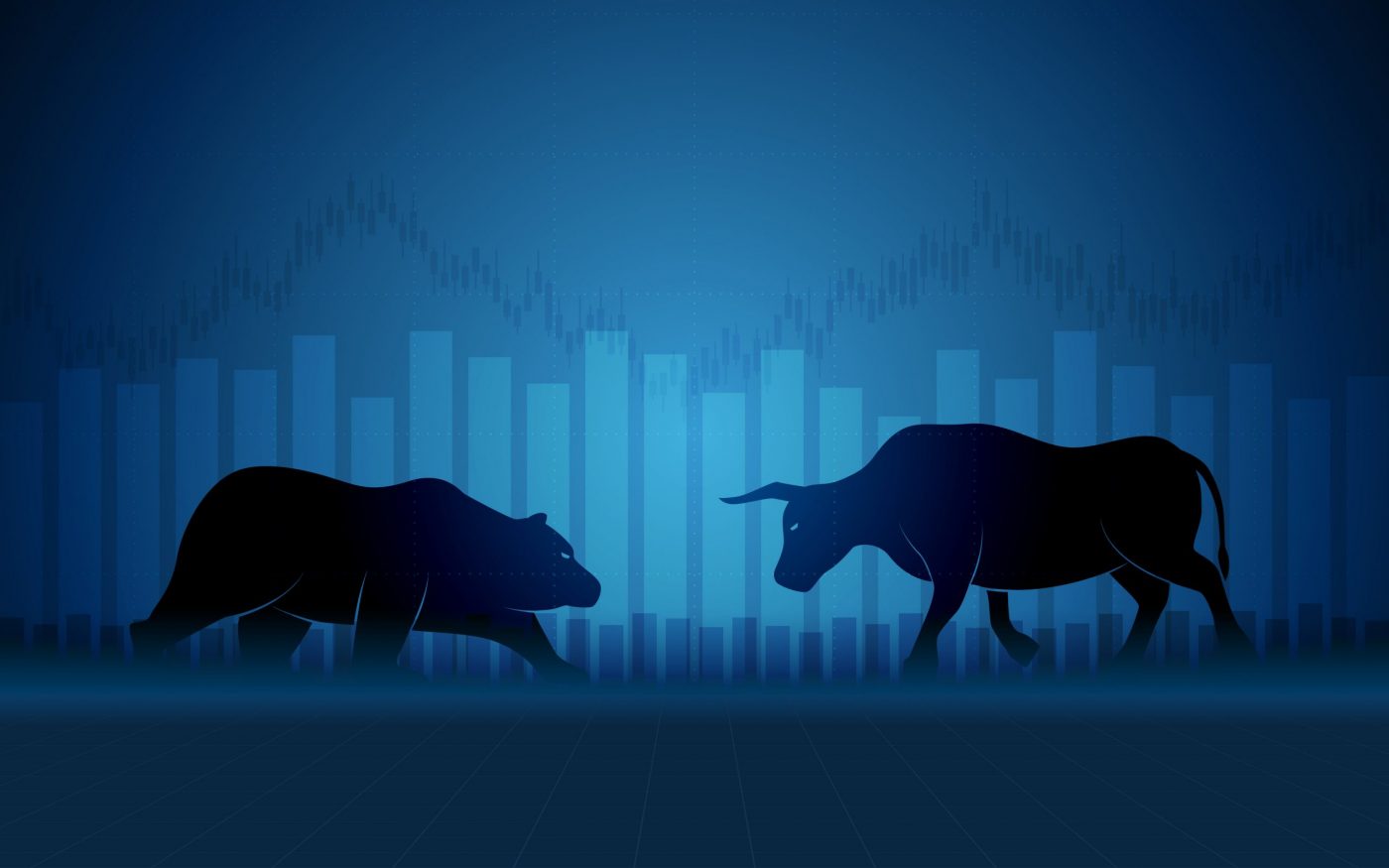In simple terms, a bull market is one in which stock prices increase; stock prices rise by 20% after two declines of 20% each.” A bear market is a market in which stock prices fall; “stocks, on average, fall at least 20% off their high.”
Factors one can use to determine if we are in a bull or bear market include but are not limited to:
GDP Changes:
- GDP stands for gross domestic product and is the measure of the country’s economic output in a year.
- GDP is a monetary device used to measure the value added to a specific economy.
Stock Market Performance:
- Major indices (a measure or indicator of data) tend to rise in bull markets and decline in bear markets
- The market conditions typically associated with a bull market will add value over time (despite a few minor pullbacks). Bear markets will detract value from the market over time (despite incremental increases).
Unemployment Rate:
- Unemployment rate is “the percentage of the labor force without a job”
- Unemployment rate helps determine the state of the economy; usually, the more people that are employed, the healthier the economy. On the other hand, higher unemployment rates may indicate trouble.
- Typically, bull markets are associated with lower unemployment rates
- Higher unemployment rates tend to indicate a variety of things, usually a weakening economy.
Interest Rates:
- Bull markets tend to be associated with low-interest rates whereas bear markets are usually linked with higher interest rates
Rate of Inflation:
- Shrinking demand for products can trigger deflation, which is often a catalyst for bear markets.
Investing in Markets
One may ask, which market will allow me to make the most profit? The answer to this question ultimately comes down to one’s investment strategy.
Investing can go one of two ways:
Long-Term Investing:
In the past, the market usually tends to increase and climb more than it does drop. In turn, long-term investors can wait out the volatility that exists between bear and bull markets.
Benefits of Investing in a Bull Market? Should be pretty obvious, right? Stock prices tend to increase!
Bear markets provide buying opportunities for the stocks that investors hold in high regard.
Short Term Investing:
Holding stock for less than a year coincides with a higher degree of risk. Investing in a bear market has risk that needs to be accounted for. For example, “many equities lose value and prices become volatile” in bear markets thus increasing risk of investing.
Looking Back At History
The 1970s Economic Recovery Bull Market:
This market came after a recession that followed the post-Second World War expansion and lasted just over six years.
The Reagan-era Presidency Bull Market:
Powered by huge tax cuts, massive job creation, and record wealth creation.
- Lasted between August 1982 and August 1987
The Great Expansion of the 1990s Bull Market:
Coincided with good economic times; robust job growth in the US and a tax relief act made certain stocks attractive.
- The growth of tech companies and the internet created a massive bull market
- Started on October 11th, 1990, and lasted just under nine-and-a-half years.
Pre-global Financial Crisis Bull Market:
- Fueled by low-interest rates
- Ended when property prices began to collapse due to the subprime mortgage crisis
- Lasted between October 2002 and October 2007
Post-global Financial Crisis Bull Market:
- Began in March 2009
- Fuelled by record-low interest rates and the easy monetary policies adopted by central banks which has made it cheap to borrow money.
- It has been extended by President Trump’s tax cuts, which reduced taxes paid by US corporations.
Humanity Wealth Advisors believes in sharing good knowledge and education. We believe your financial wellness comes from knowing good information– after all, knowledge is power and that’s what we’re all about.
The articles we provide are free resources used simply to educate, and pass knowledge; a knowledgeable investor is a great investor!
We’re the financial advisors you want to come to for affordable financial planning in the Bay Area.
Did someone ask for financial advisors without a minimum asset requirement? That’s us!
Lack of knowledge on market types may lead to diversion of financial planning; giving readers information on such markets helps us meet our goal to educate the general public
Contact us if online financial advice is crucial to you- we can help you with that.



